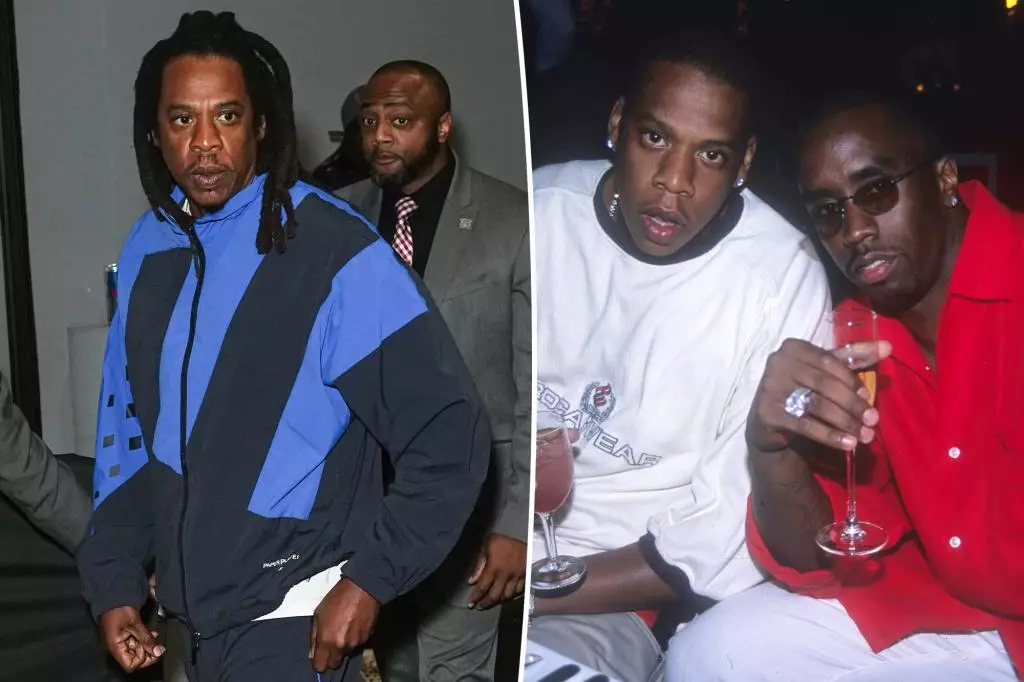The legal landscape surrounding allegations of sexual assault often involves grim realities and complex emotional undertones. A recent ruling by a New York judge has allowed an anonymous plaintiff to proceed with her lawsuit against music moguls Jay-Z and Sean “Diddy” Combs. This decision underscores the ongoing struggle to balance the rights of the accused with the needs of victims seeking justice in cases fraught with public scrutiny and potential stigma. The court determined that, for now, the identity of the plaintiff would remain protected, acknowledging her vulnerability due to the severe emotional and psychological repercussions she claims to suffer.
The ruling, overseen by U.S. District Judge Analisa Torres, hinges not just on the legal principles at stake but also on the human elements entwined in the case. Among the reasons cited for allowing the plaintiff to retain her anonymity are her ongoing battles with depression, post-traumatic stress disorder (PTSD), and a seizure disorder—all believed to be linked to the trauma of her alleged assault. This consideration reflects a broader judicial attitude that recognizes the psychological toll such experiences can have on victims, highlighting the often-overlooked emotional scars that accompany legal battles.
At the heart of this case is a shocking account of alleged crimes that dates back to the 2000 MTV Video Music Awards afterparty when the plaintiff was just 13 years old. The amended complaint reveals harrowing details of the night, presenting an image of vulnerability and violation. According to the allegations, the plaintiff was drugged to the point of incapacitation and subsequently assaulted by both Jay-Z, whose real name is Shawn Carter, and Diddy. This narrative of victimization paints a disturbing picture not only of the events but of the broader societal issues of sexual abuse in entertainment circles, where power dynamics often silence the voices of those harmed.
In response, both Jay-Z and Diddy have vehemently denied the allegations. Jay-Z’s legal team has taken a combative stance, describing the accuser’s claims as “heinous” and aimed at tarnishing his reputation. Their attempts to dismiss the lawsuit as misguided and to compel the plaintiff to reveal her identity highlight the defensive legal strategies typically employed by high-profile defendants in sexual assault cases. The courtroom arguments have revealed a tense atmosphere, with accusations of improper conduct directed at Jay-Z’s attorney for using inflammatory language during procedural debates.
The implications of this lawsuit extend far beyond the individuals directly involved. It raises crucial questions about how society addresses accusations of sexual misconduct, particularly when the accusers are vulnerable individuals. There is a palpable tension between protecting the rights of the accused and granting victims a safe avenue to seek justice without fear of retribution or loss of privacy. Judge Torres’ decision to allow anonymity for the plaintiff demonstrates an evolving judicial perspective that prioritizes survivor protection over sensationalism—a necessary step in fostering an environment where victims can reclaim their narratives without fear of judgment or backlash.
Meanwhile, Diddy is embroiled in separate but equally serious legal troubles, facing charges related to sex trafficking and racketeering, which complicates the already fraught atmosphere surrounding the music industry luminaries. These developments not only impact their personal and professional lives but could pave the way for greater accountability in a sector often shielded by fame and fortune. The ripple effects of these cases can catalyze broader discussions about consent, abuse of power, and the mechanisms available for victims to seek redress.
As this legal saga unfolds, it will likely capture media attention and public dialogue, serving as a stark reminder of the complexities involved in high-profile sexual assault cases. The balance of power in these narratives is precarious, often tilting in favor of those with greater societal influence. Yet Judge Torres’ ruling marks an important step forward, embodying a cautious optimism that the legal system can evolve to protect those who have suffered in silence. As the judicial process continues, observers around the world will be watching closely, hoping for an outcome that favors justice while holding powerful figures accountable for their actions.
